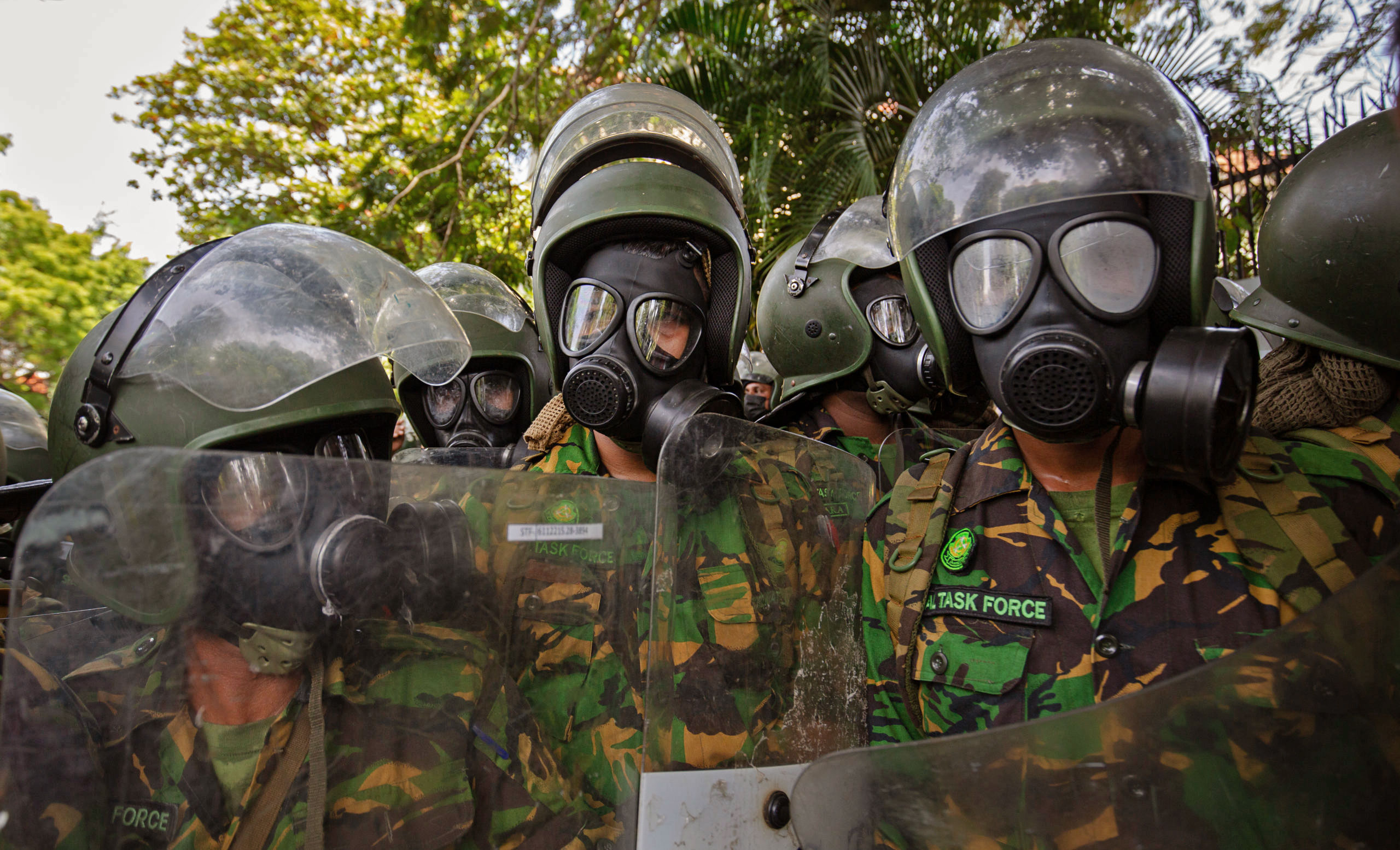Why we need the apocalypse

The countryside is on fire, The Guardian has published another article about replacing meat with mould grown in vats, and the World Economic Forum wants to block out the sun with a Brazil-sized raft of space bubbles. This isn’t the Great Reset; it’s a mood. A vibe.
Walking the dog at dusk on Tuesday through local woodland, I noticed wilting hazel saplings, poplars shedding foliage, dry yellow leaves crunching underfoot like it’s September. The ground is bone-dry. The wheat in neighbouring fields has ripened a month early.
The seasons are, as Shakespeare wrote, “out of joint”. Though Britain is no longer sweltering in unprecedented 40-degree heat, the weather has intensified an already simmering apocalyptic mood. Some are sublimating this into panic about second-order issues (health and safety is a popular choice), or arguments about whether or not panic is justified. Others are swimming in the bin with a cocktail in hand. But the vibe is everywhere.
In modern terms, “apocalypse” has come to mean “the cataclysmic end of everything”. But this is a long way from the ancient Greek understanding: to uncover, to disclose or lay bare. From this perspective, apocalypse isn’t the end of the world. Or at least, not just the end of the world. Rather, it’s the end of a worldview: discoveries that mean a previous way of looking at things is no longer tenable.
In our case, it’s no longer just cranks and prophets coming to the reluctant realisation that our current way of life can’t continue. This suspicion is percolating into the mainstream — along with a raft of increasingly unhinged responses. The Dutch farmers’ protest, now spreading across Europe, is the latest focus for the concatenating derangement this revelation has triggered.
It’s the most recent flare-up in a running battle between interest groups whose livelihoods depend directly on the continuation of our extractive industrial order, and a knowledge-economy class whose livelihood does so only indirectly. For the people who make or grow things, build things, or move things around are both heavily reliant on cheap energy to do their jobs, and easy targets for well-meaning green regulations. From farming regulations that strangle small producers, to rocketing fuel costs and travel restrictions for logistics firms unable to invest in low-emission vehicles, environmental rules take the heaviest toll on smaller businesses, adding pressure to living standards already squeezed by inflation and the pandemic.
This adds pressure to middle-class living standards already squeezed by inflation and the pandemic. And the resulting sense of being picked on finds its enemy in the knowledge class, embodied in the WEF: a kind of trade union for its richest and most influential members. This cabal of wealthy suits concerns itself less with stuff than ideas. And of course they have big ideas for saving the world: the WEF’s own stated Great Reset vision views post-pandemic chaos as a “unique window of opportunity” to “shape the recovery” in the name of “a new social contract that honours the dignity of every human being”.
For our extractive industrial mode of living really can’t go on forever. This, though, leaves ordinary farmers in the crosshairs. For most agriculture is as industrial as an Australian iron ore mine, thanks to fossil fuel powered farm machinery, nitrogen fertiliser and chemical pesticides. And these practices really do risk future food security.
Yet for the knowledge class, the world of atoms is something to be counted, rationalised, financialised, streamlined or otherwise manipulated in the course of the actually important work of abstraction, high-level thinking, and making more money. So when spreadsheet sociopaths of this type decide it’s time to force a “transition” out of such environmentally harmful and carbon-intensive work, people whose livelihoods are inextricable from that work may, understandably, have questions.
Can industrial agriculture survive decarbonisation? What will we grow? And who will own the land? Who will work it? Idealists dream of a small-farm revolution, in which hyper-productive smallholders replace pesticide-powered monocroppers. Pessimists, meanwhile, point out that even if millions of us somehow magically acquire the skills and the willingness to embrace agrarian life, land ownership is heading in the opposite direction: Great Reset boogeyman Bill Gates is now the largest owner of farmland in America, and caused outcry last month when he acquired another 2,200 acres in South Dakota. I struggle to imagine him volunteering to hand out his own property portfolio to allotmenteers.
Absent some kind of redistributive revolution, it seems more plausible that agriculture goes high-tech. Robotisation is already in use in some farms, while gene-edited crops are on their way to being waved through by the current Tory administration. And we’re forever being told that insect protein is the food of the future. But this, in turn, means even greater consolidation: fewer workers, bigger fields, larger parcels of land. In other words, more small farmers being forced out of business. And more tech implies an increasing dependency on Big Finance and biotech. If this is the future we get, those now fretting that we’re going to end up as a microchipped useless class, spending our meaningless, UBI-funded, AI-governed lives staring out of a pod home at hundreds of thousands of acres of robot-tended agroindustry while awaiting our drone delivery of insect protein, may be exaggerating only a little.
So down in the real economy, the insoluble grimness of this predicament finds expression in baroque theories about the “Great Reset”. We hear that it’s a front for tech totalitarianism and unelected one-world government, a dark plot to sterilise us or inject us all with RFID microchips, or to steal farmland and fill it with tower-blocks populated by immigrants. In all cases, the lurking suspicion pervades that what’s presented as a project to save the world is, more accurately, a project to save the laptop class at the expense of everyone else.
And indeed, grand top-down plans often seem indifferent to predictable human consequences — a fact underlined again by the Dutch protests. Here, farmers are furious that the government appears to have imposed strictures on nitrogen emissions to meet climate targets, with little thought for how the transition will be managed and how farmers’ livelihoods will be affected.
Nor is this the first time top-down idealism has fomented human-scale backlash. Last year, the Sri Lankan government was awarded an “Oscar for best policy” by the WEF, for a decision to ban nitrogen fertiliser. This government edict forced the nation’s farms to go organic more or less overnight, despite experts warning that this would be a disaster. The livelihoods and even lives lost have driven a popular uprising; last week, an estimated 300,000 protesters took to the streets, and forced the resignation and flight of President Gotabaya Rajapaksa on a military plane.
Against this backdrop, the Dutch farmers emerge as tragic reverse-Luddites, battling not against the onset of industrialisation but its end. At root their cause is the defence of livelihoods that depend on the continuation of an extractive mode of production that feeds and clothes most of us, but is also slowly killing the planet. But those imposing grand schemes aimed at forcing change don’t come out much better. Techno-futurist visions on the scale proposed by Davos Man imply a vantage-point from which all possible variables have been assessed and the rational way forward determined — a perspective that routinely obscures the human costs of knowledge-class hubris.
And beneath such futile resistance, and grandiose plans, lurks a bubbling sense of madness. It surfaces whenever the public conversation touches on just how interconnected the challenges are, and how radically, unimaginably unlike the present the future needs to be if we’re to stand a chance of surviving. The apocalypse is in fact a revelation: endless progress on the industrial model has already ended, and getting out of this bind is going to be grim. And the “high-level” WEF vision that we can “shape” this set of problems according to some illusion of mastery is, in its way, as much a fantasy as paranoid conspiracy theories concerning the Great Reset.
But all such lurid dreams still represent a saner response to where we are than those now claiming “it’s just a nice warm summer” or using our predicament to take pot shots at the Tories. For the truth is that those amplifying the Derangement Syndromes we’ve seen since 2016 are less deranged than rational. Green movements turn from policy to millenarianism; the young don’t want to have children; castration cults are making a comeback; while the great and the good are spiralling away into wishful fantasies of planetary-scale technologies riding to the rescue. None of this is madness; it’s revelation. It’s going to be a bumpy ride.


